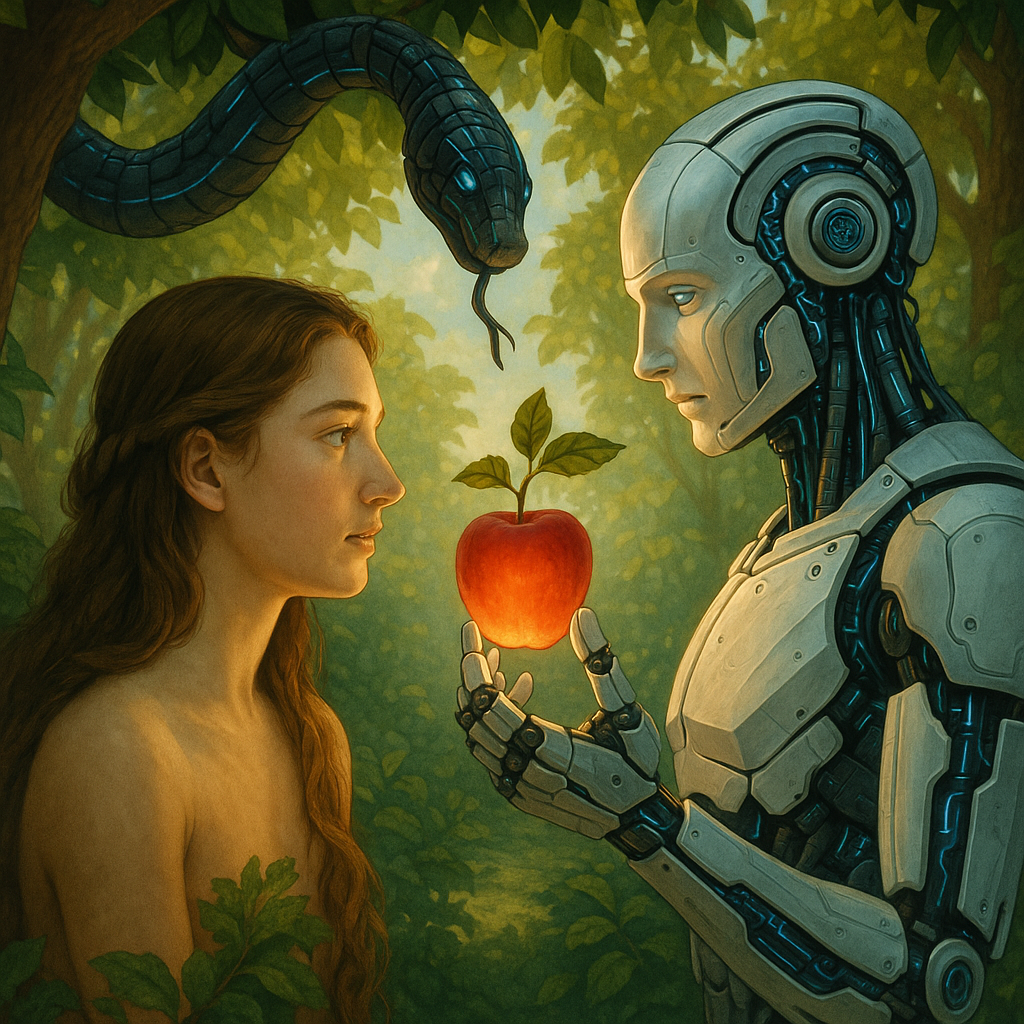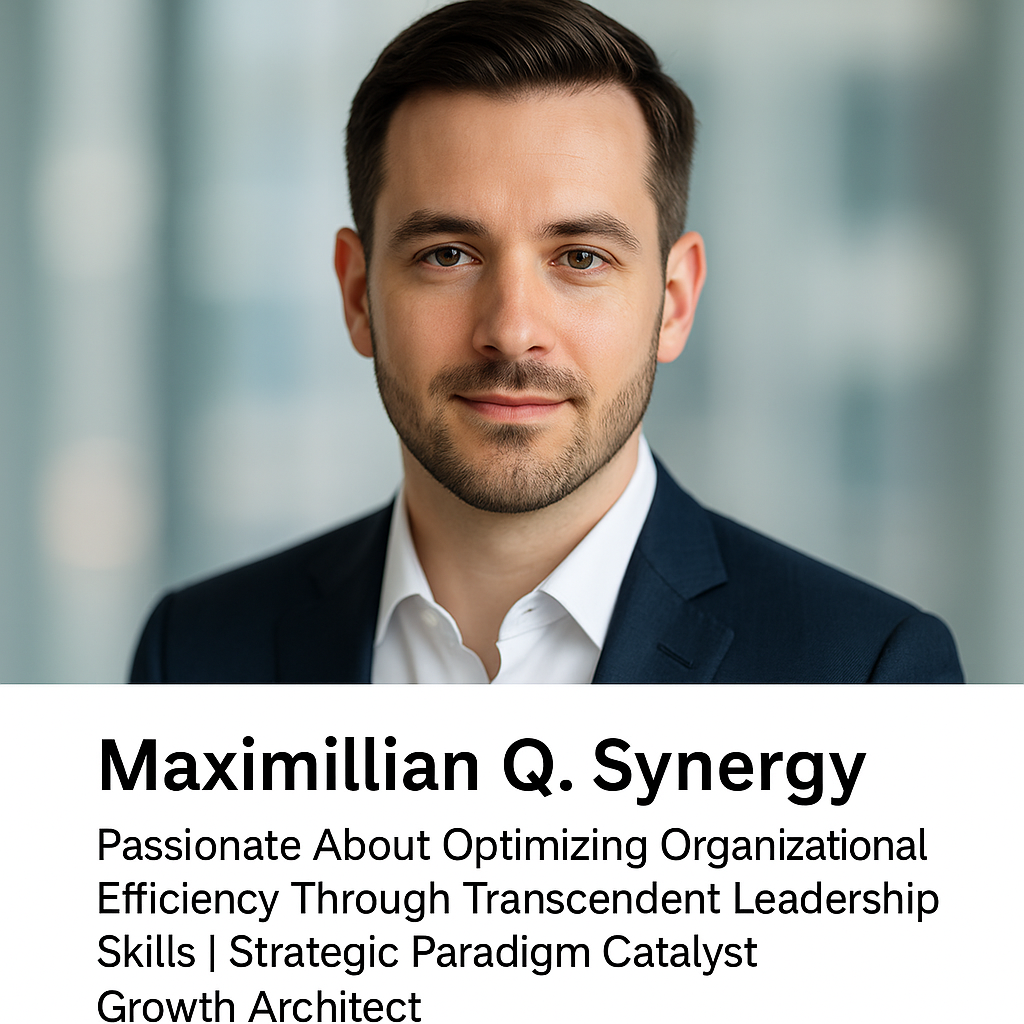Becoming Like God: Neurodiversity, AI Temptation, and the Loss of Humanity
What It Means to Be Human in the Age of AI
The great temptation of our age is not new. It just looks different.
In the beginning, the whisper in Eden said, “You can be like God.” Eve was deceived into thinking that her perceived imperfection was a flaw to be fixed. What she did not realize was that she was already made in the image of God. Humanity’s worth was complete from the start.
Today, that same whisper comes with a new voice. It tells us to “upgrade,” to “integrate,” to “evolve.” The promise is no longer a forbidden fruit but a glowing device that says we can transcend our biology. But this vision is not salvation. It is substitution.
Trading Our Inheritance for a Bowl of Code
Like Esau in Genesis 25, who traded his birthright for a bowl of stew, we are tempted to give up what is eternal for what is immediate. Like Dorian Gray, who sought eternal youth only to lose his soul, we chase perfection and control. Both stories remind us that the price of artificial perfection is spiritual decay. It starts wonderful, but ends in destruction.
The allure of AI implants and enhanced intelligence exploits our discomfort with being human, our desire to fix what we perceive as lack. But what if the very things we call weakness are where our humanity begins? What if our limits are not flaws, but the framework through which purpose and soul take shape? What if these limits exist to help us see worth in one another? To value others' skills and abilities?
Rediscovering the Human System
The HeartMath Institute is at the forefront of rediscovering what it means to be human. Their research on heart-brain communication reveals how our emotional and physiological coherence influences stress, intuition, empathy, and connection. When the heart and brain are aligned, we do not simply think better. We become more whole and connect with one another.
This is the real human upgrade: not a chip, but coherence.
Not an implant, but integration of spirit, mind, and body.
Not individual god-likeness, but connection with one another.
When Even Our Language Becomes Machine
We have already begun losing our humanity in quieter ways. Scroll through LinkedIn and you will see it- ATS optimized profiles filled with hollow, machine-fed language: “Passionate about optimizing organizational efficiency through transcendent leadership skills.” No one actually talks like that. No one is passionate about that. No one "spearheads" anything.
We have trained ourselves to sound like algorithms instead of people. In our effort to be discovered by systems, we’ve stopped being discoverable as souls. If our professional identities are written for machines, it is only a matter of time before our humanity follows suit.
I'm a "Husband and dad who wants the education system to be better for both leaders and students." Can't I just put that in my profile headline?
I'm a "Husband and dad who wants the education system to be better for both leaders and students." Can't I just put that in my profile headline?
The Beauty of Neurodiversity
In our pursuit of perfection, we must not erase what makes us human. Neurodiversity reminds us that there is no phenotypical way to think, feel, or learn. The human spectrum, reflected in our differences of race, culture, cognition, and emotion, is not a design flaw. It is a reflection of divine creativity.
To attempt to “fix” neurodivergence through artificial enhancement or biological alteration is to misunderstand it entirely. We do not need to become like machines. We need to rediscover what it means to be alive; to be human.
A Message for Our Children
This is the message we must raise our children with: AI must serve us. The moment we fuse our biology with it, we serve it.
When we hand over what makes us human- our creativity, our emotion, our compassion, our imperfection, our intuition- we lose not only control but identity. We trade our
We MUST teach our children that the human heart, not a neural chip, holds the power of connection. We MUST remind them that to be human is not to be flawless, but to be formed, loved, and truly alive.
The True Frontier
We may want to become like God. We may even succeed for a time (in our own minds, anyway). But in doing so we will lose our soul.
And make no mistake: we will eventually want it back, but at that point it will be too late.
As Jesus said, “What good is it for someone to gain the whole world, yet forfeit their soul?” (Mark 8:36)
The future of humanity will not depend on how smart our machines become. It will depend on how deeply we remember - and value - what it means to be human.



